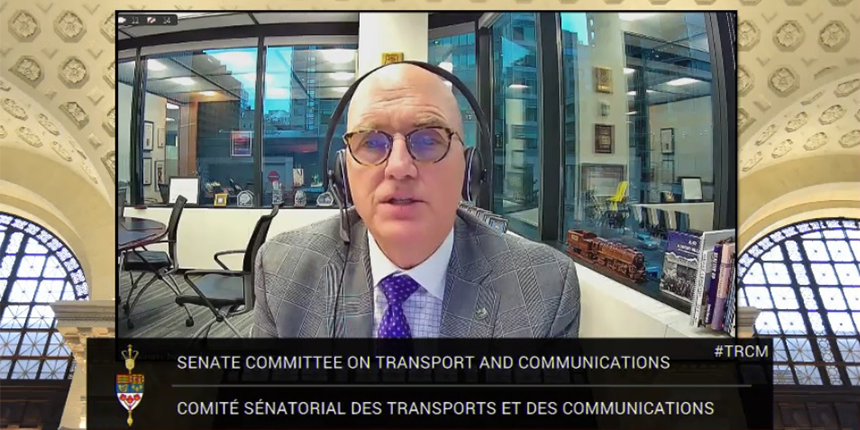

On April 27, 2022, Engineers Canada’s CEO, Gerard McDonald, testified in front of the Standing Senate Committee on Transportation and Communications as part of their study on the impacts of climate change on critical infrastructure in the transportation and communications sectors and the consequential impacts on their interdependencies.
“Extreme weather and rapid changes to Canada’s climate present a profound risk to both public safety and the reliability of Canada’s infrastructure,” McDonald testified. “The disruption and cost to Canada’s economy when infrastructure is damaged or destroyed by extreme weather events is growing and becoming more frequent across Canada.
“Licensed engineers, other professionals, policy- and decision-makers need to consider the changing climate and its impact on Canadians’ safety and quality of life as supported by public infrastructure. These concerns are not unique to transportation and communications infrastructure. Well-designed, properly built, continually maintained, and reliable infrastructure is critical to public safety, quality of life, and a competitive economy.”
McDonald offered two recommendations to the Standing Committee’s study in his testimony. First, that the federal government must consult engineers to provide evidence-based environmental assessments to support climate adaptation, mitigation, and rehabilitation of climate impacts on public infrastructure. Engineering is on the front line in the provision of infrastructure to society and as such, engineers have a significant role to play in addressing climate change issues and incorporating them into engineering practice.
Second, McDonald’s testimony recommended that the federal government extend the current climate parameters that are used to derive climate indices beyond temperature, rainfall, and precipitation. Including additional parameters—like wind speed and direction, fog, snow accumulation, duration, and intensity, freezing rain and hail, freeze-thaw cycles, and long duration rainfall/atmospheric river tracking—will build confidence in climate projections, support accurate risk assessments in built environments, and will provide engineers with defensible and authoritative climate data when supporting resilient communities across Canada.
Read McDonald’s prepared remarks on Engineers Canada’s website, or watch his testimony here (beginning at 19:31:48).


